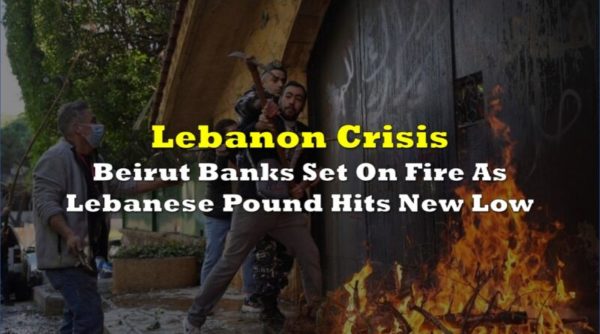By Sami Haddad
Lebanon’s banking system has faced significant challenges over the past few years, with many experts suggesting that it is struggling to survive. There are several factors contributing to this situation.
One of the main issues facing Lebanon’s banking system is the country’s ongoing economic crisis. Lebanon has been facing a severe economic downturn since 2019, with high inflation, a rapidly depreciating currency, and rising unemployment. This has had a significant impact on the banking sector, with many banks struggling to maintain their profitability and solvency.
Another issue facing Lebanon’s banking system is the country’s ongoing political instability. Lebanon has a complex political landscape, with multiple factions vying for power and influence. This has led to a lack of governance and a lack of clear economic policies, which has contributed to the country’s economic crisis and the challenges facing its banking sector.
In addition, the banking sector in Lebanon has been plagued by allegations of corruption and mismanagement. This has led to a loss of confidence in the sector among both local and foreign investors, which has further exacerbated the crisis.
Observers are talking about acquisitions and mergers of major Lebanese banks that could be funded by some Arab Gulf countries.
During a television interview in January 2020, the Governor of Banque du Liban, Riad Salameh, announced the “end of the Lebanese banking model” that had prevailed for three decades, and the need to shift to a different banking model. The announcement came as a result of the Banque du Liban’s belief that it is necessary to change the existing banking model through “restructuring” Lebanese banks, and, consequently, restructuring the entire banking sector. This view was reinforced by how Lebanese banks were affected by the economic and financial crisis Lebanon faced starting mid-2019, which intensified after the October 17 uprising , and worsened with the outbreak of COVID-19 crisis and the years that followed .
Several dozen Lebanese protesters attacked banks in a Beirut neighbourhood on Thursday, while blocking roads protesting against informal restrictions on cash withdrawals in place for years and rapidly deteriorating economic conditions.
At least six banks had been targeted as the Lebanese pound hit a new record low on Thursday, a spokesperson for Depositors Outcry, a lobby representing depositors with money stuck in the country’s banking sector, said.
The Lebanese pound has lost more than 98% of its value since the country’s financial sector imploded in 2019. It was changing hands at around 82,000 pounds per greenback on Thursday , dropping from 70,000 pounds just two days earlier.
Overall, while it is difficult to predict the future of Lebanon’s banking system with certainty, it is clear that the sector is facing significant challenges. It is possible that the system could collapse entirely if the country’s economic and political crises continue unabated.


Leave a Reply
You must be logged in to post a comment.